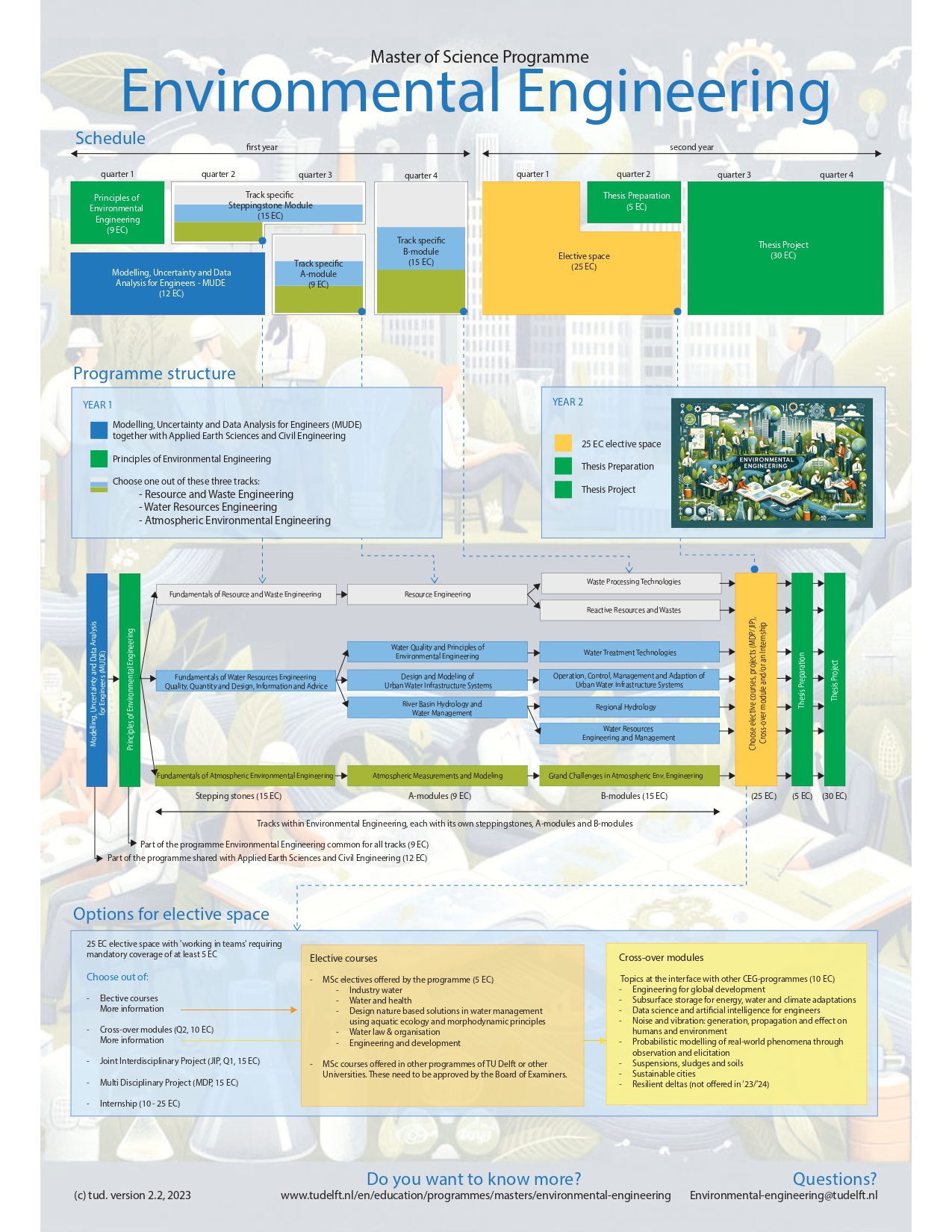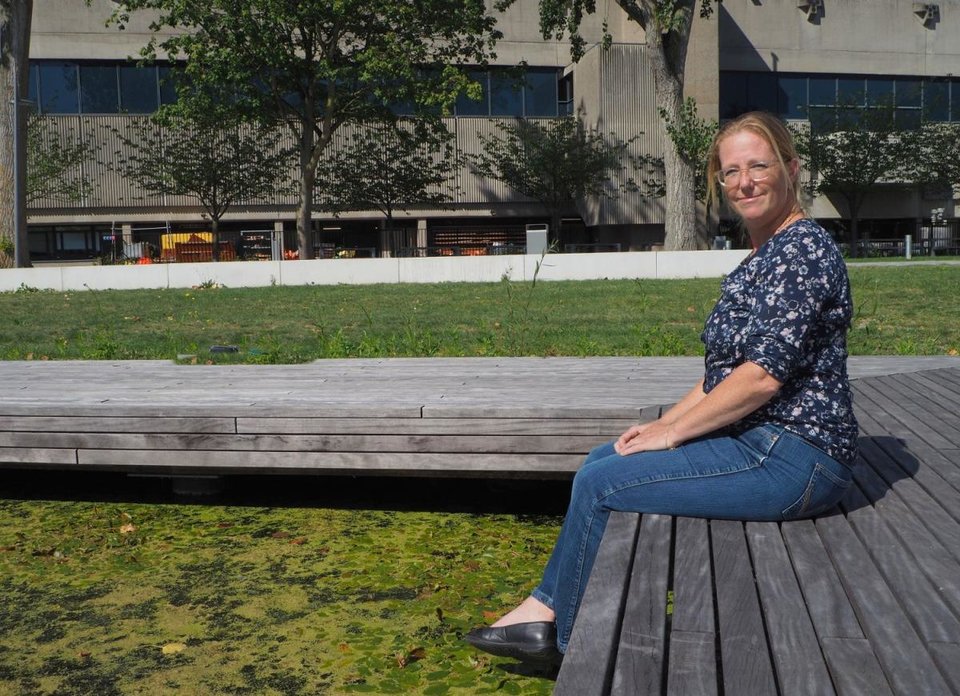Programme
Introduction to the curriculum
The first part of the programme is fixed and identical for all students. This compulsory part consists of the faculty module (12 EC) and the programme module (9 EC). After this compulsory part, you will make a choice between three tracks: (1) Water Resources Engineering (WRE), (2) Resource and Waste Engineering (R&WE), or (3) Atmospheric Environment Engineering (AEE). Each track consists of a steppingstone (15 EC), followed by an A-module (9 EC) which is primarily focussed on theory and a B-module (15 EC) which is generally characterised by a more practical and empirical approach.
The second year offers even more flexibility and freedom of choice than the first year, providing possibilities to study abroad, do an internship or a multi- or interdisciplinary project in the Netherlands or abroad, follow an in-depth module (many electives to choose from) and a cross-over module (many electives to choose from) to eventually make a well-informed choice for a research topic for the thesis.
Year 1
Faculty Module
The first year of the MSc Environmental Engineering starts with the faculty module on Modelling, Uncertainty and Data for Engineers (MUDE). This module takes place in Q1 and Q2 and is shared with Applied Earth Sciences and Civil Engineering master students.
In a typical week you will be introduced to new theory, practice it on your own through a series of exercises and work on real data sets and models together with teachers and classmates in a medium-sized classroom setting. At the end of each week you will apply these concepts in a project along with a group of fellow students. You will also have weekly coding assignments to build your programming skills in a way that will help you apply the methods learned in MUDE, as well as prepare you for your future MSc thesis work.
Programme Module
Parallel to this faculty module the first two periods will include a Programme module for only Environmental Engineering students focusing on the fundamentals of Environmental Engineering, such as the transport of contaminants between water, air and soil or (bio)chemical conversion processes within the environment. Also the impact of human interference on the environment will be discussed, its translation into legislation and the ethical considerations related to decision-making. Study topics will be addressed in the light of changing needs of societies, economic considerations and the United Nations sustainable development goals.
Tracks
During the rest of the year you will follow track specific courses of one of the following tracks:
Year 2
The second year of the MSc Environmental Engineering is designed to fully facilitate all types of individual learning paths. You can choose to participate in an inter- or multidisciplinary project to further develop the skills needed for working in a diverse team, you can do an internship to improve your professional skills, you can study abroad or choose to deepen your knowledge and follow in-depth modules. These specialisation modules can be part of the Environmental Engineering programme or other MSc programmes at TU Delft, but you could also follow modules at other universities.
Before starting your thesis, you can follow a number of ‘cross-programme modules’ in the master programmes of Environmental Engineering, Civil Engineering, and Applied Earth Sciences. This will broaden your scope, enable you to think more multidisciplinary and enhance your communication skills as a future environmental engineer.
In general, these modules may be of two kinds: a) methodological, which are oriented around common techniques and methods or b) topical, that are oriented around common topics of interest. Download the Cross-Over Brochure here to learn more. More in-depth information about each cross-over can also be found here.
The final part of the programme will consist of Master Thesis preparations and the Master Thesis itself. Master thesis preparation consists of training in lab skills, modelling, academic writing and literature research. During your master thesis you independently undertake a research or design project regarding an environmental challenge related to the track you have chosen, guided by a supervisory committee.

